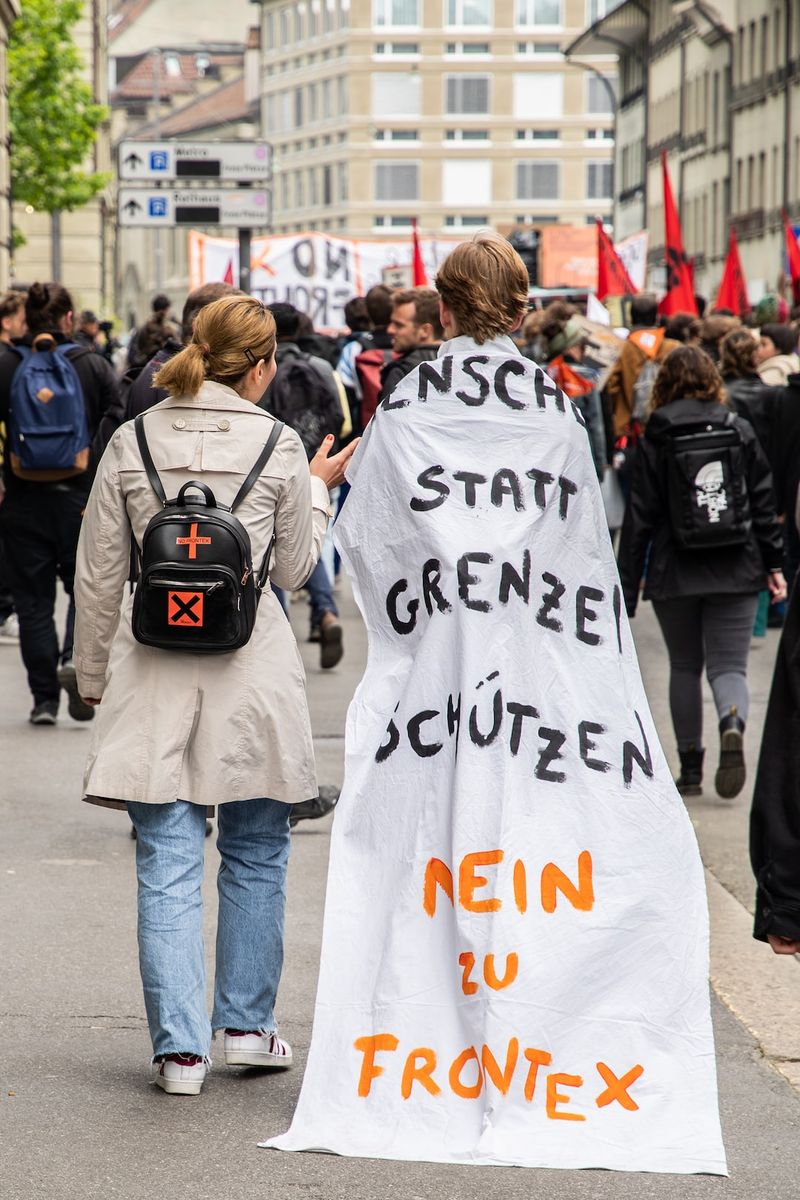Table of Contents
The Crackdown on Journalists and Freedom of Expression in Guinea
Background
Guinea, a country in West Africa, has been facing a concerning violation of the rights to freedom of peaceful assembly and freedom of expression. In May 2022, the government made a decision to ban all rallies, which has since been strictly enforced. This decision has not only stifled the voices of citizens but has also led to the arrest and prosecution of journalists who have been bravely denouncing the repeated attacks on these fundamental rights.
On the morning of October 16, 13 journalists were arbitrarily arrested while participating in a peaceful demonstration organized by the Guinean Union of Press Professionals (SPPPG). The demonstration aimed to demand the lifting of restrictions on access to certain news websites, which were blamed on the authorities. These journalists, including the General Secretary of the SPPPG, were charged with “participating in an unlawful assembly on a public highway.”
According to Fabien Offner, a researcher at Amnesty International’s regional office for West and Central Africa, this crackdown on the peaceful rally reflects the regime’s unwavering determination to silence those who are speaking out against the violations of the rights of peaceful assembly and freedom of expression. It is worth noting that Amnesty International considers the general ban on demonstrations in Guinea to be contrary to international human rights standards.
The Importance of Freedom of Expression and Peaceful Assembly
Freedom of expression and the right to peaceful assembly are fundamental pillars of a democratic society. They allow citizens to voice their opinions, express dissent, and advocate for change. These rights are protected under international human rights laws and should be respected by all governments.
By arresting and prosecuting journalists who were exercising their right to peaceful assembly and freedom of expression, the Guinean authorities have not only violated the human rights of these individuals but have also undermined the principles of a democratic society. The act of silencing journalists and restricting access to news websites deprives the public of valuable information and hampers the free flow of ideas and opinions.
Amnesty International’s Call for Action
Amnesty International has called on the Guinean authorities to drop the charges against the journalists who were arrested during the peaceful rally. These journalists were individuals who, through their work, sought to shed light on the restrictions imposed on freedom of expression and access to information. It is crucial that the authorities respect and uphold their commitment to international human rights standards.
In addition, Amnesty International has urged the Guinean government to guarantee the right to freedom of expression and to restore the right to peaceful assembly. It is essential for the government to create an environment where journalists and citizens can express themselves without fear of reprisal or prosecution.
The Role of Journalism in a Democracy
Journalism plays a vital role in any democracy. It serves as a watchdog, holding those in power accountable for their actions and ensuring that the public is well-informed. Without a free and independent press, democratic societies can easily slip into authoritarianism.
By restricting access to news websites and arresting journalists, the Guinean government is attempting to suppress dissent and control the flow of information. Such actions undermine the principles of transparency, pluralism, and accountability that are necessary for a functioning democracy.
Recommendations
In order to address the current situation and safeguard the rights to freedom of peaceful assembly and freedom of expression, it is imperative that the Guinean government takes certain steps:
1. Drop the charges against the journalists who were arrested during the peaceful rally. These individuals should not be punished for exercising their fundamental rights.
2. Revoke the ban on demonstrations and restore the right to peaceful assembly. Citizens should be able to express their opinions and concerns freely, without fear of persecution.
3. Ensure that journalists have unrestricted access to news websites and social media platforms. A vibrant and independent press is crucial for the functioning of a democratic society.
4. Engage in a dialogue with press organizations and human rights advocates to address concerns and find constructive solutions. Open communication and cooperation are essential in upholding human rights standards.
Conclusion
The arrest and prosecution of journalists and the restrictions placed on freedom of expression and peaceful assembly in Guinea are concerning developments. Upholding and protecting these fundamental rights is crucial for the progress and stability of any society. It is imperative that the Guinean government takes immediate action to rectify these violations, drop the charges against the arrested journalists, and restore the rights of its citizens. Failure to do so would further erode democracy and undermine the country’s international standing.

<< photo by Mortaza Shahed >>
The image is for illustrative purposes only and does not depict the actual situation.
You might want to read !
- Amnesty International Demands Dropping Charges Against 13 Journalists in Guinea
- Mauritania’s Enforced Disappearance: Amnesty International’s Condemnation of Youba Siby’s Rights Violations
- Amnesty International Urges Niger to Release Detained Journalist Samira Sabou
- The Lingering Scourge: Enforced Disappearances Continue to Haunt the Philippines
- Turkey’s Top Court Reinforces Suppression of Human Rights Advocates
- Unregulated trade contributing to human rights abuses in protests, reveals global inquiry
- Brazil’s Disability Plan: Towards an Inclusive Society for All
- Bloodshed in Myanmar: Uncovering the Truth Behind the Deadly Military Air Strike
- Tunisia’s Ongoing Repression: Upholding Justice for Arbitrary Detentions
- Vietnam’s Climate Activist: Charges Must Be Dropped